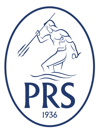The two Authorities have been working collaboratively to ensure that vessel owners and operators are aware that inspections will be undertaken to ensure compliance with the new sulphur limit requirements on marine fuel oil, from 1 January 2020.
These new requirements prohibit the use of non-compliant fuel from 1 January 2020 and the carriage of non-compliant fuel, for use on the ship, from 1st March 2020, unless the ship is fitted with a scrubber.
To raise awareness in advance of the implementation of the new requirements, both the Paris MoU and the Tokyo MoU member Authorities have been issuing letters to vessels since the beginning of 2019, to remind them of the new requirements and the date of application.
During this information campaign, the awareness among ships’ crew proved to be high, especially with respect to the requirements entering into force on 1 January 2020. Emphasis is therefore placed on the requirements entering into force on 1 March 2020 prohibiting the carriage of non-compliant fuel, for use on ships not equipped with EGCSs.
To remind, the three options for compliance are:
-
Use compliant fuel oil with sulphur content not more than 0.50% m/m;
-
Use an alternative fuel, such as LNG, with a sulphur content of 0.50 % m/m or less; or
-
Fit an alternative means of compliance, such as a scrubber approved under regulation 4 of MARPOL Annex VI.
The consensus at MEPC 73 was that there was no need to request port State control Authorities to adopt a ‘practical and pragmatic’ approach as compliance was expected.
Therefore, the two Memoranda have agreed that the requirements in relation to the implementation of the 0.50% m/m sulphur cap will be applied without exception.
This includes the carriage ban on non-compliant fuel from 1 March 2020. As such, from 1 March 2020, non-compliant fuel can only be carried onboard, for use on the ship, where the vessel is fitted with a scrubber.
In instances where compliant fuel cannot be obtained a Fuel Oil Non-Availability Report (FONAR) must be submitted to the flag State and the Competent Authority in the next port of call.
Źródło: SAFETY4SEA, Luty 202

